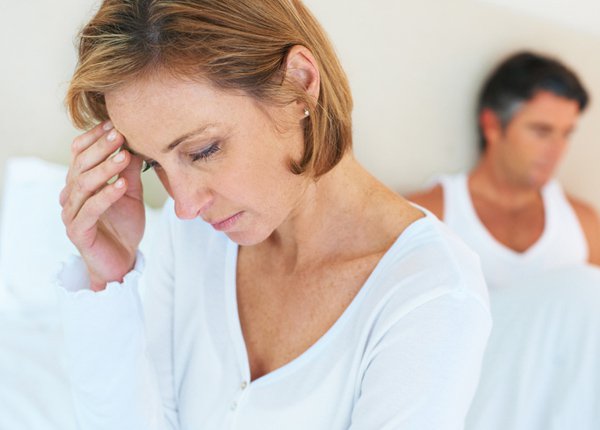
Menopause and Sexual Health When Dryness Equals Discomfort
Although they gladly said “good riddance” when it came to their tampons and pads, some postmenopausal women may not be so pleased to bid farewell to the natural lubrication they experienced in their younger years.
What is the connection between menopause and vaginal dryness?
During a change of life, once steroid levels begin to drop, the canal walls become diluent, less elastic, and less lubricated. This can result in a number of symptoms, including vaginal dryness and dyspareunia – or pain during sexual intercourse – which is said to be one of the most bothersome vaginal symptoms of menopause. Decreased lubrication can also cause discomfort, bleeding, and tearing of the vaginal tissues during intercourse.
Is it normal?
If you’re biological time and experiencing painful intercourse or channel waterlessness, take comfort in knowing you’re not alone. According to a survey of ladies ages forty to eighty-four, over 1/2 biological time girls surveyed (56 percent) full-fledged channel waterlessness. In fact, eighty-three p.c United Nations agency expertise channel waterlessness says the waterlessness bothers them “a very little to a good deal.” what is additional, one in four of the biological time girls surveyed (26 percent) reported they experienced painful intercourse.
Why am I experiencing vaginal dryness and related pain during sex?
Why the decrease in vaginal moisture and the resulting painful sex with menopause?
The most common cause is declining estrogen.
The hormone estrogen helps keep the vagina healthy by maintaining its elasticity and lubrication. As a woman ages, her ovaries produce increasingly less estrogen, leading to a thinner, less flexible, and drier vagina.
What can I do about vaginal dryness and painful intercourse?
One of the most important obstacles, once it involves treating epithelial duct waterlessness and painful intercourse, is that ladies do not address it, with their partners or their health care professionals. More than six in ten of the biological time girls surveyed United Nations agency according to experiencing painful intercourse (62 percent) and quite 0.5 United Nations agency according to experiencing epithelial duct waterlessness (53 percent) admitted they are at least somewhat embarrassed to talk about their condition.
And of the postmenopausal women surveyed, 45 percent who reported experiencing vaginal dryness and 41 percent who reported experiencing painful intercourse had not spoken to their health care professional about their condition.
Why so hush-hush about vaginal dryness? Among the biological time girls surveyed United Nations agency had not spoken with their health care skilled, embarrassment (30 percent vaginal dryness, 33 percent painful intercourse), and the belief that there is nothing that may be done medically to assist the condition (20 % epithelial duct waterlessness, 27 percent painful intercourse) were the top reasons why.
Embarrassment aside, many women may not believe their vaginal problems are treatable. More than a 3rd of the biological time girls surveyed United Nations agency according to experiencing epithelial duct waterlessness (37 %) and forty-one percent United Nations agency according to experiencing painful intercourse in agreement with the statement, “I do not believe there’s anything that can be done medically to help improve my condition.” Fortunately, that is not the case.
Vaginal waterlessness and painful intercourse that interfere along with your style – specifically, your sexual health – warrant a trip to your health care professional. After all, epithelial duct waterlessness and painful intercourse because of climacteric area unit a natural a part of aging you’ll do one thing concerning.



